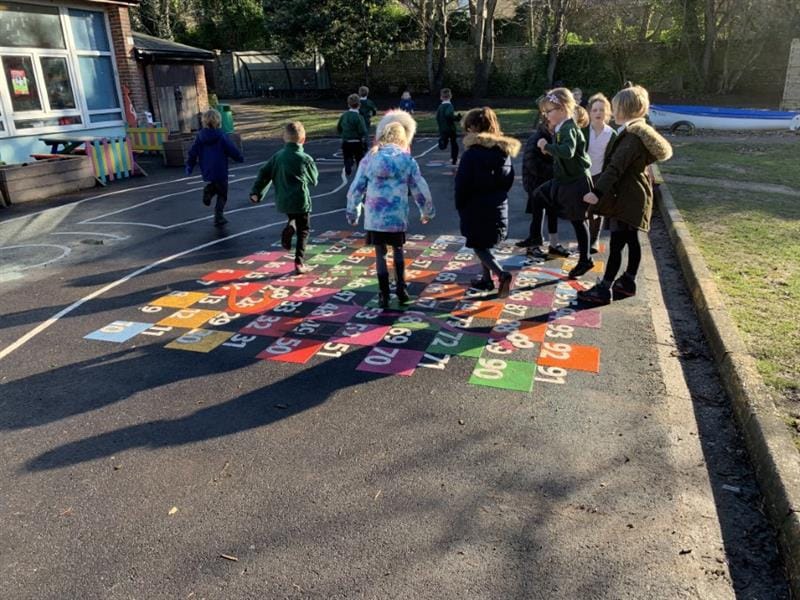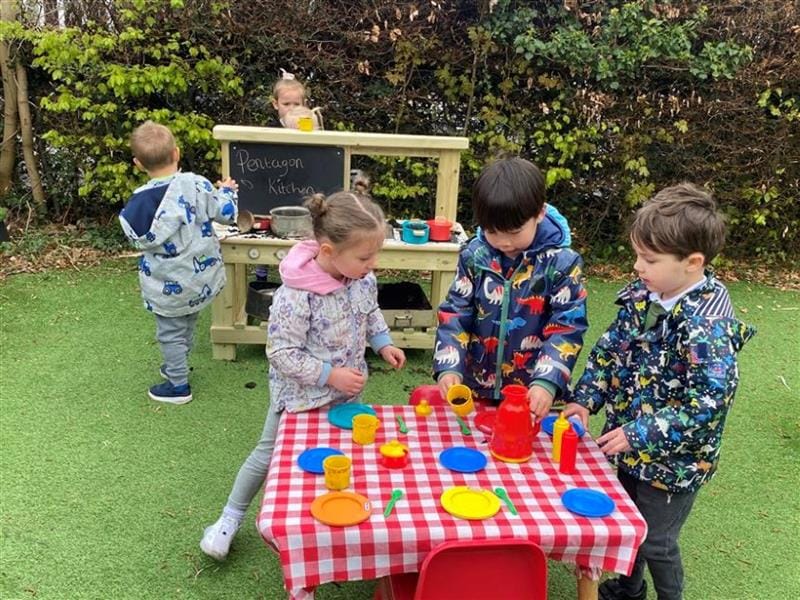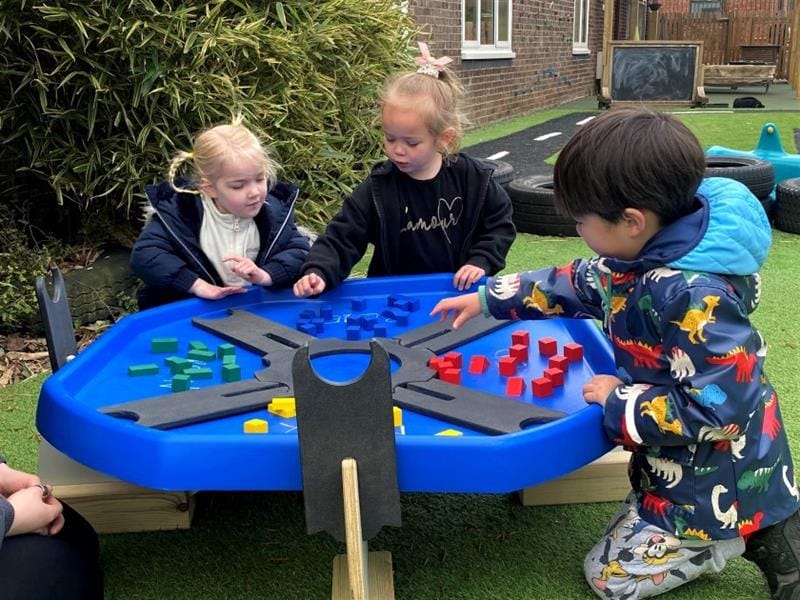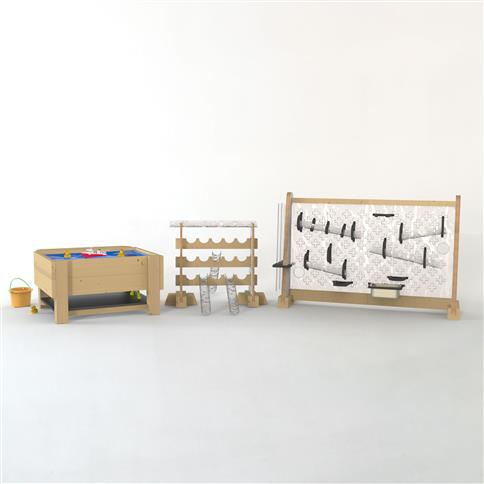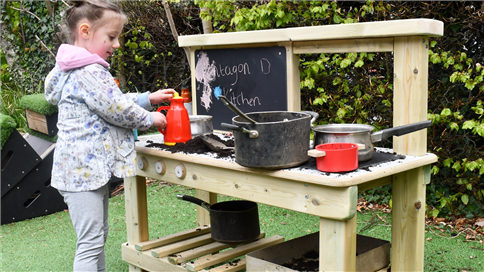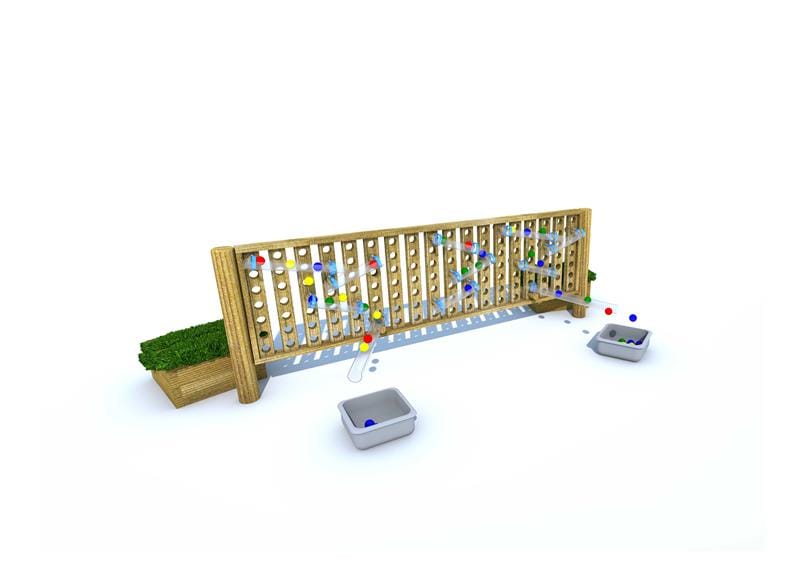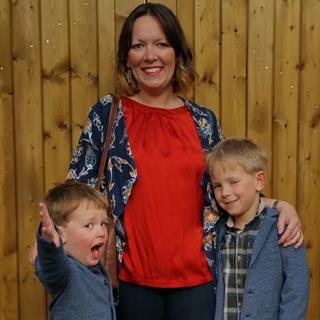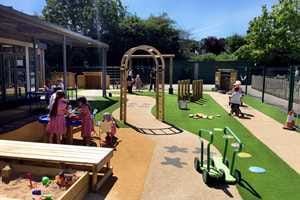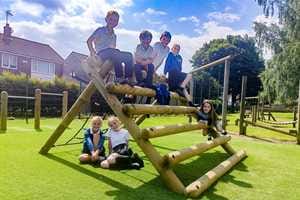
Lesson Ideas and Activities
6 Ways To Support Children with Dyscalculia Through Outdoor Learning and Play
Dyscalculia is one of a family of specific and persistent learning difficulties.
The Dyslexia Association describes dyscalculia as a specific learning difficulty with mathematics, primarily arithmetic, where “the mathematical difficulties are not caused by lack of educational opportunities,” and “the degree of difficulty is evidenced to be below expectations for the individual’s age.”
There are a number of teaching strategies that can be used to help children with dyscalculia in the classroom. Making maths practical and multi-sensory, rather than using worksheets, is absolutely essential.
As is so often the case, an outdoor learning environment which supports practical, hands-on, kinaesthetic learning, is the very best place for children with dyscalculia to learn how to overcome and deal with some of their difficulties.
Maths can be stressful for some children, but it’s so much easier to take the anxiety out of it in a fun outdoor-learning environment - an open, informal space to explore, make mistakes and learn that that’s okay. It’s how we learn best.
It’s helpful to know how to spot whether a child may have dyscalculia rather than just being someone who finds maths a bit difficult or doesn’t like it.
Either way, the strategies that you can use to help children with dyscalculia will work well to support children who simply need a bit more encouragement.
At primary level, a child may have dyscalculia if they:
- Have difficulty learning and recalling basic number facts such as number bonds to 10
- Cannot immediately recognise the number of items in a set without actually having to count them. Most people can recognise up to at least 6 or 7 items. A dyscalculic learner will not be able to do this and may have difficulty in recognising just 2 or 3 items
- Continue to use their fingers to count instead of more advanced strategies such as mental maths
- Have a poor understanding of maths symbols
- Struggle to recognise, for example, that 2 + 4 is the same as 4 + 2
- Have trouble with place value, often putting numbers in the wrong column
- Are unable to understand maths language or cannot devise a plan to solve a maths problem
- Find it hard to understand maths concepts such as greater than and less than. When given two numbers, a dyscalculic learner will have difficulty in identifying which is the larger.
- Have trouble keeping score in sports and games
- Have difficulty using money
- Have difficulty telling the time
- Often avoid situations that require understanding numbers, like playing games that involve maths
The Dyslexia Association also explains that more often than not, dyscalculia is co-occurrent with one or more other conditions or learning difficulties such as dyslexia, dyspraxia or ADHD/ADD.
You can speak to the British Dyslexia Association if you would like to get a Dyscalculia test for a child.
6 Practical Ways To Support A Child With Dyscalculia Through Outdoor Learning
The most important thing to remember when teaching maths to a dyscalculic child is to keep it practical and sensory-based wherever you can. The activity ideas below, which you can use in conjunction with your Pentagon products, are ideal for this!
Whatever you are doing, keep talking together. Try to use mathematical language as much as possible and encourage your pupils to do the same.
All the terminology needs careful explanation to avoid confusion, especially because so many words (e.g. difference, table, product, value) have more than one meaning. Encouraging a child to explain each of these terms back to you helps them to become much more familiar with them.
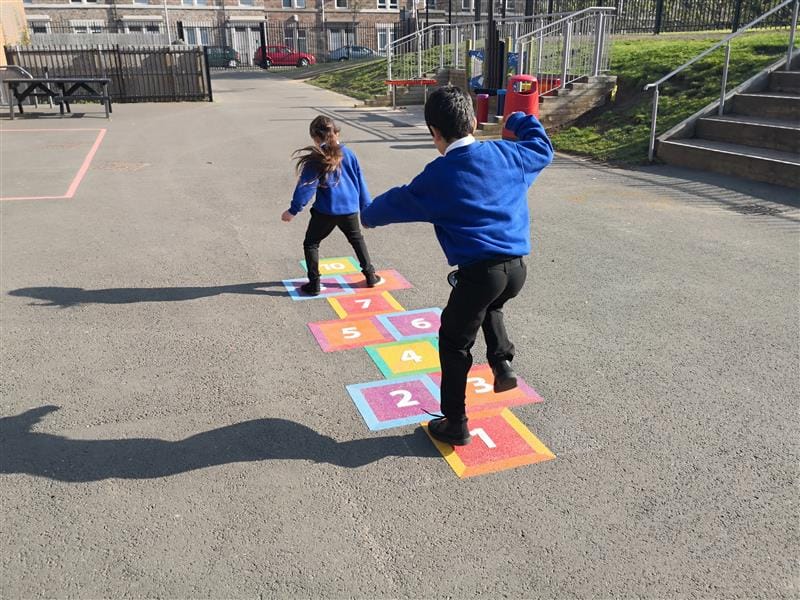
1. Visual Maths
Visual multiplication grids and number bonds help to reduce the stress of trying to remember facts. We have a fun range of bright and bold numerical Playground Markings, which turn your playground surface into a brilliant maths resource.
A 1-10 Number Caterpillar or a 1-20 Number Dragon are great products to start with, moving onto a 1-100 Number Grid for more complex counting and number bond practice. Get active, jump and shout out along them as you count forwards and backwards!
Use them with a dice or bean-bags for fun practical and physical games to help children start to recognise common patterns.
2. Role Play Games
Role Play games are brilliant for helping children learn how to manage day-to-day situations where maths is involved.
A Mud Kitchen is the perfect place for cooking up a mud pie or creepy crawly cake. Encourage children to count out and measure the “ingredients” - repetition with a “little and often” approach is essential.
3. Playground Playhouses
A Playhouse with Chalkboard can be turned into a supermarket brimming with delicious fruits and vegetables to be counted out and weighed before chopping into a number of portions for a recipe.
Chalk up prices and quantities on the chalkboard.
Turn the Playhouse into a make-believe restaurant where, before preparing the food, children can set the table for their customers. Laying out plates and cutlery will help them to learn sets of groups and how things correspond with each other.
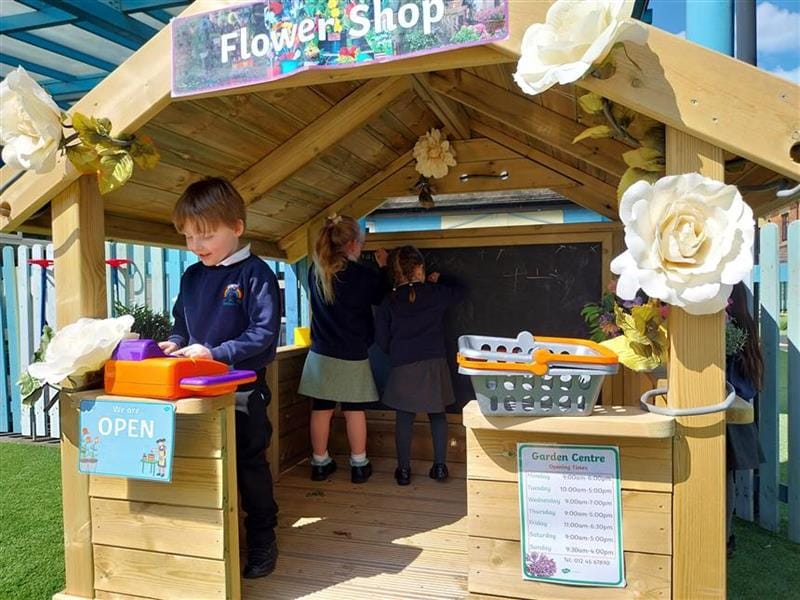
Be sure to provide a play cash register and play money, so children can become more familiar with monetary values.
4. Tangible Resources
Use plenty of tangible, concrete materials to help develop children’s understanding.
Young children usually use cubes and beads for counting and visualising equations and it’s really important that these are not taken away from a child with dyscalculia. The wider the variety of materials that you can use, the better for helping to generalise mathematical concepts.
A Tuff Spot Table or a Construction Table provide plenty of space for working outdoors with tangible resources and offer great scope for variety. You can create a handy mathematical resource box using the shelves and sliding storage boxes underneath.
Fill them with items such as building blocks, dominos, dot and digit cards, number lines, rulers, Cuisenaire rods, plastic/magnetic/foam numbers, colourful craft beads and pom-poms, number bonds cards, pens and paper/whiteboards.
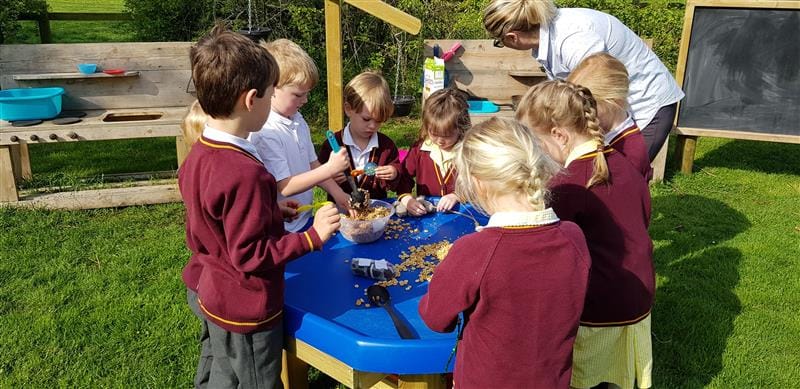
Encouraging children to use these kinds of resources regularly for maths lessons helps them to visualise the number system and provides an important bridge between concrete materials and abstract symbols.
Place value, understanding the worth of each number, can be very difficult for a child with dyscalculia to grasp - but using these resources, with plenty of mathematical discussion around them, can really help.
Product Spotlight
5. Practical Maths
Practical maths games that involve puzzles and problem solving activities can be brilliantly motivational and really have their value when it comes to helping a child with dyscalculia to develop mathematical understanding.
Our outstanding Ball Run is a fantastic playground resource for practicing problem-solving skills. Children can plot and arrange their own course for the balls to travel down.
In groups, they can count on along the peg holes, using co-ordinates to instruct each other as to where to place the channels. Release the balls from the top and discover if your course design has been successful!
Use plenty of different coloured balls for the children to practise counting as they play. How many yellow balls are making it down to the bottom of the course without falling off the wall?
This helps them to sequence and remember numbers. It’s also a good way of helping a child to practise more efficient counting strategies that work for them such as counting on rather than counting all.
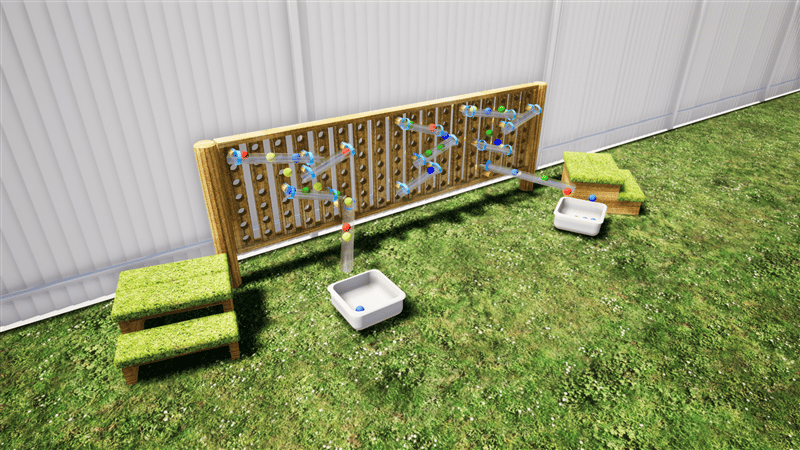
6. Maths and Music
Maths and music go hand in hand. We have a wonderful range of intriguing Outdoor Musical Instruments which never fail to entertain!
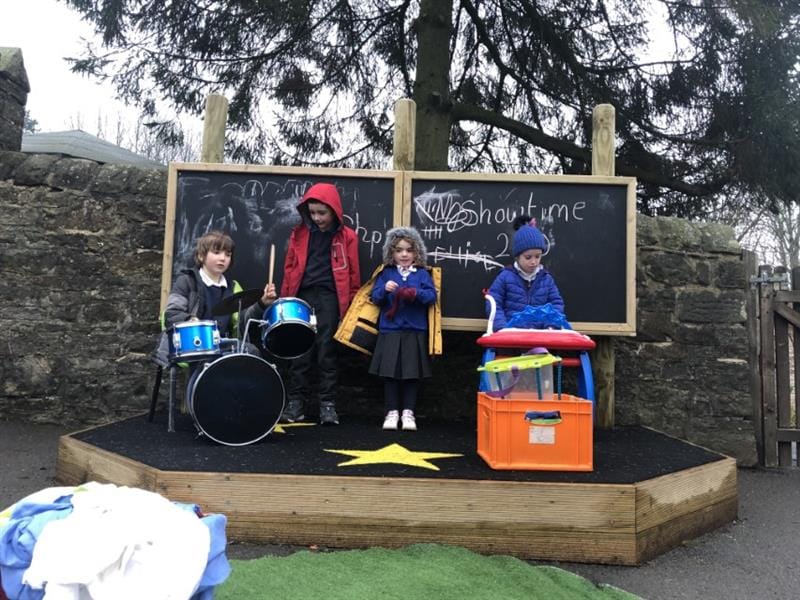
Making music can be a real confidence booster as well as being a great deal of fun. Beating out a rhythm, short repetitive sequences to count along with, is also a great way of taking some of the stress out of maths lessons for a child with dyscalculia and keeping maths practical and real.
At Pentagon, we work with both mainstream and SEN teaching professionals across the primary and nursery sectors to design our specialist range of SEN Outdoor Play and Learning Products for schools and nurseries.
We create outstanding outdoor learning spaces that inspire children to play and explore. Our products are designed to support hands-on learning and teaching through a variety of alternative methods.
If you wish to improve your outdoor play and learning facilities at your school or nursery, to engage children right across the curriculum, please Contact Us.
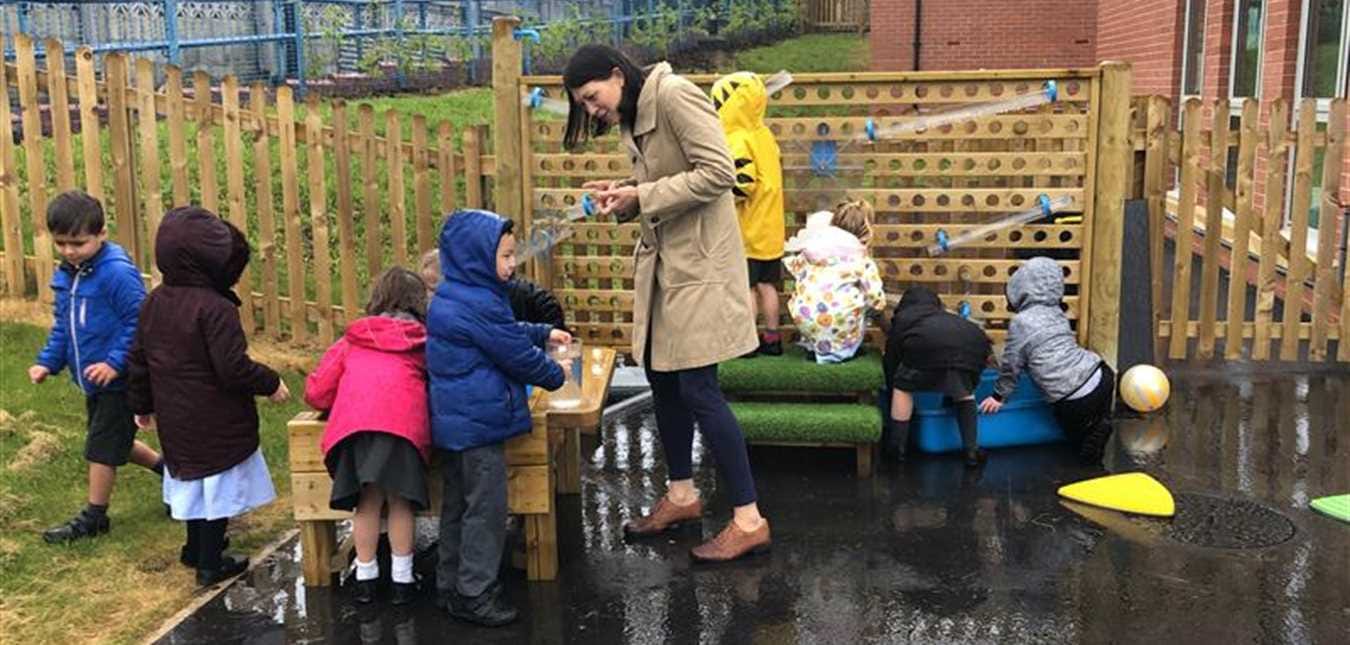
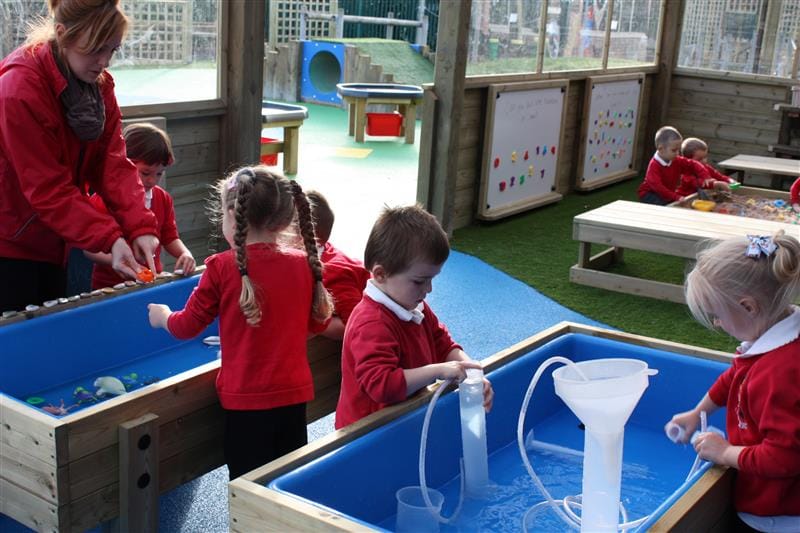
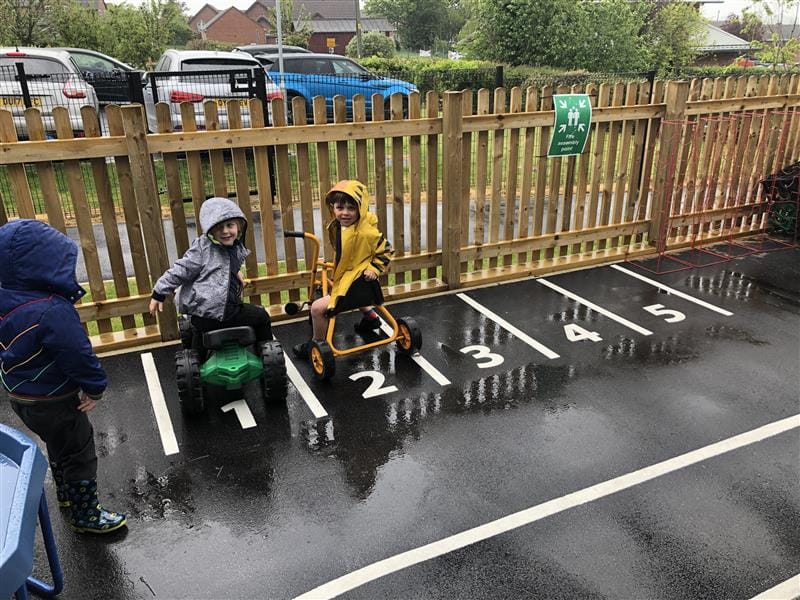
.JPG)
